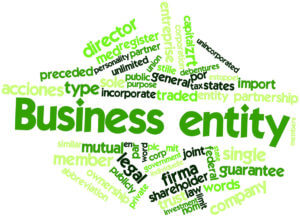How do you choose the type of business structure or entity that is best suited for your business? Well, for one thing, it would depend on the type or products or services that you intend to provide with your business. Other factors that would help to determine the business entity choice would be the kind of ownership structure preferred and what the current state of finances are (some business entity structures are more affordable than others).
There are several options of business entity structures to choose from, such as sole proprietorship, partnership, limited liability companies and private limited companies to name just a few. As an entrepreneur, what should you take into consideration when deciding the type of business entity you should choose?

What to Consider When Choosing a Business Entity
Below are some of the considerations an entrepreneur should take into account to help them select the right kind of business entity for optimum success:
- The Ability to Raise Capital – Capital is one of the most important factors of any business success. If a business is not raising capital, it isn’t making money. And if it isn’t making money, it is only a matter of time before it goes under. Analyse your business plan and if your plan does not already do so, analyse the strategy portion of your plan and what needs to be done to achieve your business targets. Having a clearer picture about your business goals and strategies will help you better decide on which type of business entity will be the best fit for you to achieve those targets.
- The Types of Taxes – Different business entity types would have different tax structure systems in place. For example, the tax on businesses which are partnerships, LLCs or sole proprietorships may not necessarily be the same amounts or percentages. Some structures even allow for exemptions depending on the type of business you run and where you run your business.
- The Risk Factor – With every business, there is risk involved. But a smart entrepreneur looks for ways to minimise risk, including selecting the right kind of business entity that will help achieve that goal. Selecting the wrong business structure could result in your business being more of a liability than a profit maker, so take your time, scrutinise every aspect before making a decision.
- The Liability Involved – Some business entities offer more personal liability protection for the owner than others. For example, certain structures like corporations and LLCs separate ownership and management, thereby protecting the business owner from any potential suits brought against the business. Other structures, such as sole proprietorships for instance, leave the owner exposed and vulnerable to being held personally responsible for all business and managerial decisions.
At the end of the day, it also comes down to the personal preference of the business owner in question. After taking into account all the different scenarios and possible risk factors involved, the entrepreneur would have to make the choice that is going to bring about the most benefit not just for themselves, but for the overall business involved.

